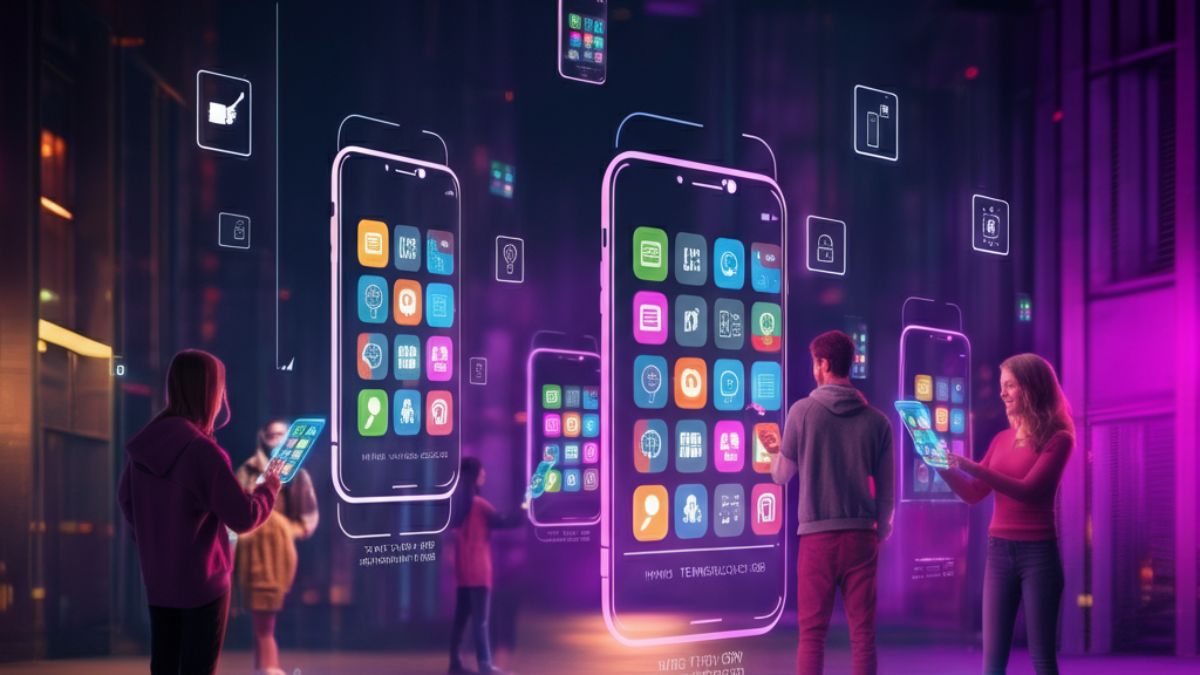Mobile apps have become an integral part of our daily lives. From ordering food to tracking fitness goals, these small yet powerful software tools enable incredible convenience. But the influence of mobile apps extends far beyond personal use—they’re transforming industries, boosting productivity, and reshaping the way businesses interact with customers.
This blog explores the evolution of mobile apps, their growing significance, and their applications across diverse areas, from business to leisure. Whether you’re a casual user or a tech enthusiast, you’ll leave with a deeper appreciation of how mobile apps have revolutionized modern life.
The Rise of Mobile Apps
Mobile apps have come a long way since the first iPhone app store launched in 2008 with just 500 apps. Today, there are over 2.7 million apps on Google Play and 1.8 million on Apple’s App Store. This explosion highlights the demand for specialized functionality, ease of access, and versatility that apps provide.
But why are mobile apps so popular? Their appeal lies in their ability to deliver convenience, speed, and personalization. Unlike traditional websites, apps are tailored to leverage the capabilities of smartphones, from GPS to accelerometers, creating unique customer experiences.
Why Are Mobile Apps Essential?
Mobile apps fulfill two core purposes. They cater to users’ personal or professional needs and offer a seamless way for businesses to engage with their customers. Here’s how they excel in different areas:
1. Enhanced Convenience and Accessibility
Apps make everyday tasks simpler. Want to transfer money? Open your banking app. Need a ride? Use ride-sharing platforms like Uber or Lyft. Everything you need is just a tap away, reducing the need to visit physical locations or use clunky websites.
2. Customized Experiences
81% of app users prefer access to personalized content. Whether it’s Netflix suggesting films based on your viewing history or a fitness app recommending specific workouts, apps offer bespoke experiences that cater to individual preferences.
3. Efficiency and Productivity
For professionals, mobile apps help manage time and streamline workflows. Apps like Trello and Slack bring teams together, even when working remotely, ensuring projects run efficiently.
4. Revenue Generation for Businesses
From subscription models to in-app purchases, mobile apps are a significant revenue stream. For example, gaming apps alone generated $92.2 billion worldwide in 2022, demonstrating their profitability.
Mobile Apps in Business
For businesses, mobile apps have become pivotal tools, driving growth and fostering stronger relationships with customers. Here’s how they’re transforming industries today.
1. Customer Engagement
Businesses are using apps to build lasting connections. Push notifications, interactive content, and loyalty programs encourage frequent user interactions. For example, Starbucks’ app not only lets users order ahead but also rewards repeat customers through a points system.
2. E-Commerce
Mobile commerce, or “m-commerce,” is booming. Retail apps from Amazon to Etsy simplify shopping while implementing features like voice-assisted search, AR overlays, and personalized recommendations to enhance the buying experience.
3. Financial Technology
Fintech apps like Robinhood and PayPal are modernizing financial services with secure, user-friendly platforms for money transfers, investments, and more. With biometric authentication, users can feel safe while engaging in fast, seamless transactions.
Mobile Apps in Daily Life
The scope of mobile apps stretches into nearly every aspect of personal life. These categories play a crucial role in how we spend and enjoy our daily lives.
1. Fitness and Health
Apps like MyFitnessPal, Calm, and Nike Run Club empower users to take control of their well-being. Whether you’re tracking calorie intake or practicing mindfulness through guided meditations, these apps make achieving health goals accessible to all.
2. Social Connectivity
Social media platforms such as Instagram, TikTok, and WhatsApp thrive as mobile apps, helping people stay connected. Features like video calling and instant messaging make it easier to maintain relationships across long distances.
3. Leisure and Entertainment
Streaming services like Spotify and YouTube have redefined how we consume content. Mobile gaming, too, has carved out its place as a dominant force within the entertainment sector, with titles like Candy Crush and Genshin Impact being immensely popular.
4. E-Learning and Productivity
Education-focused apps like Duolingo and Coursera have created accessible platforms for users of all ages to learn new skills. Meanwhile, productivity apps such as Evernote and MS To-Do ensure you never miss a deadline.
Emerging Trends in Mobile App Development
The future of mobile apps is exciting, with new technological advancements shaping their evolution.
1. Artificial Intelligence (AI) and Machine Learning (ML)
AI-enabled apps enhance user experiences by adapting to personal preferences. For instance, AI-powered chatbots provide customer support 24/7, while ML algorithms improve the accuracy of predictive analytics.
2. Augmented Reality (AR)
AR is redefining app usability, particularly in industries such as retail and gaming. Apps like Ikea Place allow users to visualize furniture in their homes before making a purchase, adding an interactive layer to e-commerce.
3. Super Apps
Companies are starting to develop “super apps” that integrate multiple services into one platform. Think WeChat, which combines messaging, payment systems, and even shopping features, streamlining the user experience.
4. IoT Integration
The Internet of Things (IoT) is enabling apps to interact with smart devices such as thermostats and home security systems. With IoT, apps create interconnected ecosystems that make life simpler and more efficient.
How to Choose the Right Mobile Apps for You
The sheer number of apps available can be overwhelming. To find the ones that truly suit your needs, here are some tips to consider:
- Read Reviews: Apps with high ratings and positive user feedback are usually reliable.
- Understand Permissions: Be cautious about apps requesting access to unrelated features.
- Check for Updates: Active development ensures the app remains secure and functional.
Why Mobile Apps Are Here to Stay
With their ability to transform everything from household chores to billion-dollar industries, mobile apps have cemented their place in modern life. They’re no longer simply tools; they’re ecosystems that drive development, innovation, and connection.
The rising adoption of AI and IoT will only make apps more powerful, efficient, and indispensable, and businesses that capitalize on these technologies are set to stay ahead of the curve.
Are you tapping into the full potential of mobile apps for your business or personal life? Start exploring or refining your mobile app ecosystem today and experience the difference!
The Challenges of Mobile App Development
While mobile apps offer significant benefits, their development comes with a unique set of challenges that must be addressed to ensure success.
1. Platform Fragmentation
With numerous devices running on different operating systems and versions, developers face the challenge of ensuring compatibility across platforms. An app that works flawlessly on one device may not perform equally well on another, requiring extensive testing and optimization.
2. User Privacy and Security
Ensuring the confidentiality and security of user data is paramount. Cyber threats and vulnerabilities can compromise sensitive information, leading to a loss of trust. Developers must implement robust encryption, secure authentication methods, and regular security updates to protect users.
3. High Competition
The app market is highly saturated, with millions of apps vying for attention. Standing out requires not only a unique and functional app but also a sound marketing strategy to reach the intended audience effectively.
4. Maintenance and Updates
Developing an app is just the beginning; ongoing maintenance, bug fixes, and updates to meet user expectations or adapt to new technologies are vital for long-term success. This demands continuous effort and resources.
5. Balancing Functionality and Performance
While users seek feature-rich apps, performance and usability cannot be compromised. Striking this balance requires careful design and development, as poorly performing apps often result in uninstalls.
Understanding and addressing these challenges can pave the way for creating impactful and sustainable mobile applications that meet user needs while maintaining a competitive edge.









